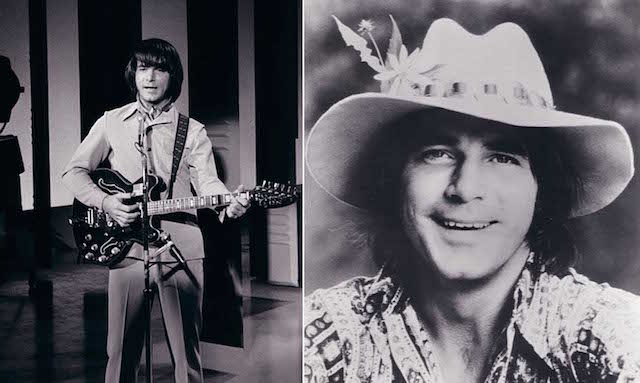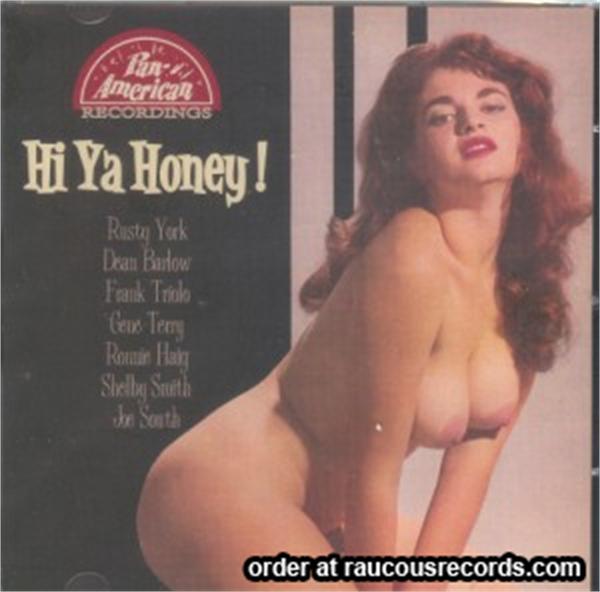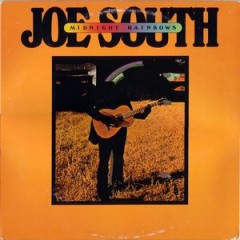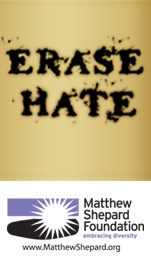
Joe South
February 28, 1940-September 5, 2012
Stories abound about Joe South, about how back in the day–when he became a star on the strength of his own hits (“Games People Play,” “Don’t It Make You Wanna Go Home”) and smash covers of his songs by the likes of Lynn Anderson (“[I Never Promised You a] Rose Garden”), Billy Joe Royal (the trifecta of “Down In the Boondocks,” “I Knew You When” and “Hush”) and Paul Revere & the Raiders (“Birds of a Feather”)—he was arrogant, bitter, condescending, ill-tempered and otherwise guilty of repeated instances of aberrant behavior (some of stemming, no doubt, from his self-admitted drug addiction). Fans who saw him in concert report that South, his great songs notwithstanding, was an aloof performer who had difficulty stirring up an audience. An enduring legends has South directing an unresponsive crowd in a Georgia dive to “get out of your seats, take each other’s hands and start dancing around the hall. Then when you come down here in front of the stage, each one of you can kiss my ass.”
On the other hand, plenty of people remember Joe South as a hail fellow well met, not exactly extroverted but possessing sub-surface warmth that flowered when he was among friends or in casual gatherings. Early in his career, Mark Pucci, a veteran independent music publicist based in Atlanta, worked for Bill Lowery’s company, where Joe had broken into the industry in 1958. He sent the following email in response to a note I sent him remarking upon the staying power of one of Joe’s best, but most obscure, albums, 1975’s Midnight Rainbows, which I had reviewed for Rolling Stone upon its release.
“I definitely remember Midnight Rainbows–a wonderful album,” Pucci wrote. “Always remember seeing a framed copy of the cover on Bill Lowery’s wall for many years. My office was right across from Bill’s the first several years I worked for him so I saw & heard Joe and all the other writers/performers come in to talk with him (Billy Joe, Tommy Roe, Ray Whitley, The Tams, Alicia Bridges, Buddy Buie, JR Cobb, ARS, Dennis Yost, etc.). It was a great experience for me personally. I always found Joe to be reserved, shy & quiet, but with a funny sense of humor. I also remember the time Lowery got a call from some Waffle House waitress outside of Atlanta who called to tell us that Joe was in there & just gave her the keys to his Mercedes! Joe was a special talent; I would often hear Lowery reciting the lines to ‘Don’t It Make You Wanna Go Home’ because he loved that imagery so much.”
In short, Joe South was an immensely talented guy who, apart from his drug-fueled furies, experienced emotional highs and lows of no greater or lesser magnitude than anyone else’s. A fellow who appreciated the unique Waffle House waitresses probably loved the country ham they served too, and that makes him alright in my book.
This anecdotal evidence pro and con became not irrelevant but certainly secondary late in the night on September 5 when word came that Joe South had suffered a sudden massive heart attack and left this world at age 72. Other stories then loomed more essential: of how the artist born Joseph Souter in Atlanta, GA, on February 28, 1940, broke into the business with publisher/disc jockey Bill Lowery’s Lowery Music Group in his home town, and became a vital cog in Lowery’s National Recording Corporation house band, which was also populated by gifted up-and-coming musicians such as Jerry Reed and Ray Stevens. A quick study, South became an ace producer. One of Nashville’s legendary producers, Emory Gordy Jr., has not only praised South as “a gifted musician and producer” but has stated that “fully 95 percent of the stuff I know about recording I learned in the studio with Joe South—from playing to production.” Favoring a Gretsch “Country Gentleman” guitar, South rewired and staggered the instrument’s pickups to achieve a raw, snarling sound that amped up the ferocity of his soloing on his own records and stood out on others’—listen to what brought to Aretha Franklin’s “Chain of Fools” (heard to best effect on the unedited version) and you’ll know right away that Steve Cropper, Jimmy Johnson and Reggie Young weren’t the only Olympic-caliber white soul guitarists working the southern precincts. It was South’s electric guitar that was overdubbed onto Simon & Garfunkel’s acoustic version of “Sounds of Silence,” after which the single became the duo’s breakout hit; in Muscle Shoals and Nashville he swung easily between accompanying Wilson Pickett on the one hand, and Marty Robbins on the other; and every publication in the world is noting that Joe was summoned to Music City to play on Dylan’s Blonde on Blonde album.

But all along Joe South was pointing towards a solo career. While with Lowery’s NRC group he made his debut as a recording artist with an agreeable cover of the Big Bopper’s 1958 novelty hit “The Purple People Eater Meets the Witch Doctor,” featuring an amalgamation of characters that starred in hit singles from 1958 by Sheb Wooely (“Purple People Eater”) and Chipmunks creator David Seville (“Witch Doctor”). It actually charted, peaking at #47. (On this recording South sounds so much like Carl Perkins as to fuel speculation that it really was the Original Cat recording as Joe South. It wasn’t. It’s Joe South.)
In 1961 his single ‘You’re the Reason’ (released on the Fairlane label), peaked at #87 on the Billboard Hot 100 singles chart and at #16 on the country chart. South’s original generated multiple cover versions, first by Bobby Edwards, who took it all the way to #4 country in August 1961, with subsequent covers by Hank Locklin (#14 country), Johnny Tillotson (#48 country in 1968) and Narvel Felts (#82 country, 1982). Despite “You’re the Reason” being a solid, well-crafted song and well produced, South had not yet found a distinctive singing voice: at times heavily influenced by Elvis in his vocal attack, his clean legato lines also revealed his affection for, yes, Carl Perkins.
A year after “You’re the Reason” South was back in the lower regions of the chart with his song “Just To Be With You Again” also on the Fairlane label. A sweet, Latin-tinged love song with a pop-styled background choral group and South’s unusual shimmering guitar, it finds the artist singing less like Elvis and Perkins and more in the pop-country mode of Johnny Tillotson–but not yet like Joe South.
Also in ’62, South had his first big hit as a writer when beach music giants The Tams had a Top 20 hit with his R&B ballad “Untie Me,” heavily derivative, both in the lead vocal and the string arrangements, of Drifters hits of the time, but nonetheless a gritty, effective performance deserving of its popularity. Released on the Arlen label, “Untie Me” is another gem from the NRC crew (South, Jerry Reed, Ray Stevens, et al.). Two years later, in ’64, Joe had another minor hit as a songwriter with Jimmy Elledge’s version of his R&B-influenced rocker, “Gonna Turn My Voodoo On.”
Finally, in 1965, all of South’s hard work paid off when his former roommate and fellow Georgian Billy Joe Royal landed a record deal with Columbia (he had previously recorded for the small Sussex label) and established himself as a solo artist with two exceptional Joe South tunes: “Down in the Boondocks,” a #9 single in the U.S., #1 in Canada; and its followup, “I Knew You When,” also a #1 Canadian single, while peaking at #14 in the States. In 1967 he had a #52 single with the original version of South’s “Hush,” which took its refrain—“Hush, hush, I thought I heard her calling my name”—from the mesmerizing Negro spiritual “Hush, Hush, Somebody’s Calling My Name.” In her column for Reconciliation Ministry, the Rev. April G. Johnson notes: “…the Negro spiritual is the original music of the freedom movement. These were songs whose titles and lyrics signaled the path toward freedom. Hush, hush somebody’s calling my name signaled to the runaway slave and the conductors on the Underground Railroad to lay low. It meant the bounty hunters or the slave master was on the move near and about the path of runaway.”
Apropos of this discussion, Billy Joe Royal’s breakout hits also mark the moment when Joe South found his voice as a writer inspired by the clash of cultures between society’s lower and upper crusts. “Down In the Boondocks” pulsates with a certain simmering resentment the singer from the wrong side of the tracks harbors towards those better off who would stand in the way of his affection for a girl from the upper strata: “I love her, she loves me, but I don’t fit in their society/Lord have mercy on a boy from down in the boondocks,” the latter plea delivered complete with no small measure of sarcasm. “I Knew You When” was far darker and more embittered in its lyrical kissoff of a girl who had dumped the singer after she had “come up in the world” and found “someone who could offer more.” Billy Joe sang it like it meant it; from a purely literary and musical standpoint it was a better record than “Down In the Boondocks” but the subject matter being so unforgiving—South allowed no light to seep into his narrative—may have hindered it from not only surpassing but even matching its predecessor’s success (although our friends up north in Canada gave both singles an enthusiastic chart topping judgment).
Itching to establish himself as a solo artist, Joe made another move towards that goal in 1968. Four years earlier, psychiatrist Dr. Eric Berne had caused a national sensation with his book Games People Play: The Psychology of Human Relationships, which introduced the concepts of games and transactional analyses. As defined on Dr. Berne’s website, games are “ritualistic transactions or behavior patterns between individuals that can indicate hidden feelings or emotions.” The book spent more than two years on the New York Times bestseller list; inspired a popular new genre of self-help books (e.g. Thomas A. Harris’s I’m OK-You’re OK); and to date has sold more than five million copies. Joe South had some thoughts on the games people play too–especially the little deceits authority figures employ against their gullible, weaker, followers, along with the soul numbing “little murders,” as Jules Feiffer would call them, that ordinary people commit against friends, family and foes every day. Betrayal, deceit, religious hypocrisy, avarice–these were the accelerants igniting South’s wrath as he crafted the indictment he titled after Dr. Berne’s blockbuster book and set it to a melody lifted in part from the Balfa Brothers’ 1965 Cajun classic, “Tit Galop Pour Mamou.” The single introduced a number of South trademarks: his snarling guitar; a strong masculine singing voice that now bore no trace of Elvis or Carl Perkins affectations but had heft, soul and more than a little southern swagger; a big sonic backdrop, in this case with a robust string section joining the basic band; and a habit he cultivated of drawing his listeners into his confidence by seeming to address them directly, as “you” or “y’all” (as in “Never meaning what they say, never saying what they mean, y’all…”), and emitting a conspiratorial “ha!”, like a sharp elbow to the ribs, to emphasize an especially ludicrous example of boorish behavior.
Joe South, ‘The Games People Play’
‘Tit Galop Pour Mamou’ by the Balfa Brothers, the 1965 Cajun classic from which Joe South lifted part of the melody for ‘Games People Play,’ his #12 pop single from 1968-69.
Big as it was, “Games People Play,” a #12 pop single that did not chart country, was a lesser hit than 1970’s appeal for tolerance, “Walk a Mile in My Shoes,” which also hit #12 pop but also peaked at #56 country and #3 adult contemporary (and was the only Joe South song Elvis added to his repertoire, strangely enough). Nevertheless, South was making some extraordinary recordings, especially of the songs Billy Joe Royal had cut first. In his powerhouse rendering of “I Knew You When” he sounded as if he barely had a grip on sanity–the track is dotted with self-affirmative “yeah!” asides and he almost breaks out in derisive laughter when he sings of his girl throwing him over for a well-heeled type after they had clung to each other so long as lovers from the wrong side of town. At a couple of junctures his vocal fury intensifies as his guitar spits and snarls and the drums pound, until it seems the track is going to obliterate itself, so threatening is its apocalyptic thunder.
Joe South, ‘I Knew You When’
As ferocious as “I Knew You When” was, it was tame compared to what South wrought on the version of “Hush” he recorded for his Games People Play album in 1969. A year earlier the song had been a breakout U.S. hit for Deep People, with Ritchie Blackmore on guitar and Jon Lord on organ driving the track. Theirs was a classic ‘60s rock single out of the box. But where Deep Purple’s interpretation was dramatic and relentless, South’s version–its atmosphere thick, churning, foreboding, fueled by his venomous guitar fills, was an elemental discourse on obsessive love–he has to interrupt his conversation to call for quiet because in his fevered imagination he thinks he hears the woman he’s lost summoning him–“Hush, hush, I thought I heard her calling my name now”–before he reveals the unhealthy price he’s paying for his fixation:
She’s got a love like quicksand and all it took was the touch of her hand/blew my mind and I’m in so deep/I can’t eat y’all and I can’t sleep…na na-na-na na na na na-na na—tell the truth!
(On their second album, released in 1974, Lynyrd Skynyrd paid tribute to Joe when Ronnie Van Zant threw in an ad-libbed “tell the truth” at the end of the Watergate verse of “Sweet Home Alabama,” phrasing it almost exactly as Joe did in “Hush.”)
In Joe’s version, the narrator in “Hush” is every bit as haunted by his lost love as Heathcliff was for his Catherine in Wuthering Heights, minus her ghostly, beckoning visage at the window. This obsession devolves into madness for the song’s last minute-plus, when Joe abandons lyrics altogether to engage in some guitar pyrotechnics as a group of female southern soul singers chants “good love, good love!” while Joe breaks into the chugging maelstrom now and again proclaiming “bring it on home! Come on, bring it on home!” and “Gotta have good love, wanna have good love” and emitting a rather chilling maniacal laugh or two before his guitar punctuates the groove with spiky metallic shards as the track fades out. Sprinkled as they are throughout the song, his many “yeah!” pronouncements have the effect of making confidantes of his listeners, bringing us around to embrace his point of view by the sheer force of his conviction. Being a long way in style and execution from the old spiritual that gave it birth, “Hush” may not be working in the fields of the Lord, but it certainly qualifies as a secular house-wrecker of the first order.
Nineteen-seventy proved a very big year for Joe when Lynn Anderson took his “(I Never Promised You A) Rose Garden” to #1 country and #3 pop, won a Grammy for herself and a Grammy for Joe as a songwriter, gathered a raft of national and international awards, went platinum and even became a Marine recruiting song as well as a career tune for Anderson. It had all of South’s blunt “Games People Play” attitude (he posits that “sweet talking” someone through a crisis changes nothing and counsels Emersonian self-reliance as the only way to go) in its pragmatic view of advising couples to master the ebb and flow of a relationship by cherishing each moment for what it is, given how fleeting the time we’re allowed–its “come along and share the good times while we can” invitation is the Joe South iteration of poet Robert Herrick’s “gather ye rosebuds while ye may.” In the same year, South revealed a more sensitive, poignant side in his modest crossover hit “Don’t It Make You Want to Go Home” (#41 country, #27 pop),” which reflects wistfully–and in sublime, poetic terms–on carefree childhood days in Georgia and laments how encroaching civilization has tarnished those memories (“There’s a drugstore down by the riverside where my grandma’s cow used to graze/Now the grass don’t grow and the rivers don’t flow like they did in our childhood days/Don’t it make you wanna go home now…) while also suggesting incipient spiritual ennui (“all God’s children get weary when they roam”).
 Then, in the full flush of “Rose Garden”’s success in 1971, Joe was savagely waylaid by his brother Tommy’s suicide. In addition to being close as siblings, Joe and Tommy were also work partners, Tommy being the drummer in Joe’s studio and live bands. Spiraling down into a clinical depression, Joe wasn’t heard from for another four years and even some of those closest to him didn’t know where or how to find him. This son of the south, it turns out, had dropped out and ventured even further south on the map.
Then, in the full flush of “Rose Garden”’s success in 1971, Joe was savagely waylaid by his brother Tommy’s suicide. In addition to being close as siblings, Joe and Tommy were also work partners, Tommy being the drummer in Joe’s studio and live bands. Spiraling down into a clinical depression, Joe wasn’t heard from for another four years and even some of those closest to him didn’t know where or how to find him. This son of the south, it turns out, had dropped out and ventured even further south on the map.
“I flipped out,” he told Jeff Walker for liner notes Walker penned for South’s comeback album, 1975’s astonishing, haunting Midnight Rainbows, released on the Island label. “I just went completely into the ether in the wake of my brother’s death. I just had to get away, so I went out to the Islands, caught Polynesian paralysis and just lived in the jungles of Maui for a couple of years.”
Midnight Rainbows was not an uncommercial record, but it was more challenging lyrically than most mainstream music of the mid-‘70s and its songs very much limned a spiritual quest for answers, for redemption and not least of all for grace. The Islands got into his bloodstream, and some exotic elements surfaced in his music, such as the tropical flavors and Beatles-ish orchestrations spicing the touching message of reconciliation to his departed brother in the title track and its companion song “It Got Away.”
His own spiritual renewal was couched in bittersweet terms. In “God Forgave Me,” he lashes out at a significant other who deserted him in his darkest hour. “Why do you punish me for the things I used to do,” he sings not with the bravado of old but with a tempered blend of resentment and hurt. “God really loves me, now why don’t you? Just when everything looks rosy, you always take the other view. When I was fallin’ all to pieces and the pieces sort of fell on you, God forgave me, why can’t you?” Dour as the subject matter is, the music has a glide in its stride, and about a minute from the end the old Joe surfaces briefly with a terse “Ha!” in the middle of a sarcastic broadside.
“We worked hard on this album,” Joe recounted in the Midnight Rainbows liner notes. “It took nearly a year to get it all down right. I tried very hard to lay it out there in such a way as to have multiple levels of unfoldment. I hope whoever’s listening will derive his own short story from each track; each person should just fill in his own blanks. I also try to keep what I’m saying on a positive level. Nobody likes to hear bummers, although there are enough of them on the air. Bumming people out is one level of unfoldment I just don’t want to vibrate.”
He even dusted off an old NRC single from 1958, “My Fondest Memories,” an emotional teen love ballad that a young Joe South sang with a catch in his heavily echoed voice; here, the chastened, scarred Joe South evinces a resigned acceptance of a lost love never returning.
What did vibrate on Midnight Rainbows was one man’s sense of struggle and rebirth as the most pronounced “unfoldment” in South’s rawest statement ever as an artist. It even closed on a decidedly eerie note with “Cosmos,” a moody, unsettling instrumental (South claimed it was nothing more than glorified “finger exercises”) that can be heard as much as a new beginning–an overture–as it can be a dirge, fulfilling South’s dictum for each listener to “fill in his own blanks.”
Nineteen-seventy-six saw another new South album in You’re the Reason, on the Guato label, but it had none of the compelling personal testimony of Midnight Rainbows. Then, silence. Nothing more was heard from the artist until 2009, when a new song he had written for Oprah Winfrey, “Oprah Cried,” was issued as a single and promptly vanished.
Yet, in his reclusiveness, something positive had happened to the man. According to his long-time companion Judy Thompson, speaking to Michelle E. Shaw of the Atlanta Journal-Constitution, Joe had “just really started to enjoy life. But he was still working. He’d just had a song released in Australia.”
According to Ms. Thompson, she and Joe had recently returned from a trip to California, where they had traveled to celebrate his granddaughter’s second birthday. They took a cross-country train back to Atlanta, a trip Ms. Thompson said Joe exulted in. “It took us four hours to get out there and four days to get back,” she said. “But he loved every minute of it, and said taking the train across the country was on his bucket list.”
Joe South is survived by a son, Craig, and a granddaughter. His first marriage ended in divorce. His second wife died in the late 1990s.
In the end, for always meaning what he said and for saying what he meant, for all he gave and for giving his all, Joe South finally experienced some of the peace he often found elusive in his days among us. If that thought were to make its way into a Joe song, is there any doubt how he would have emphasized its fundamental truth after he sang it? So let it be written: “Yeah!”
Godspeed.
Joe South on Music City Tonight, early ‘90s, performs ‘Walk a Mile in My Shoes’
From That’s the Way It Is, Elvis claims Joe South’s ‘Walk a Mile In My Shoes’ for his own and precedes the song with his own thoughtful introduction.




















